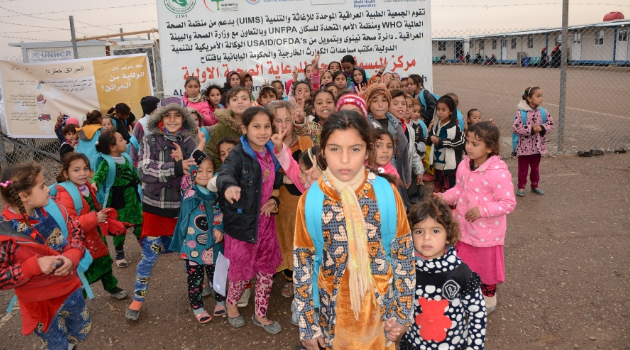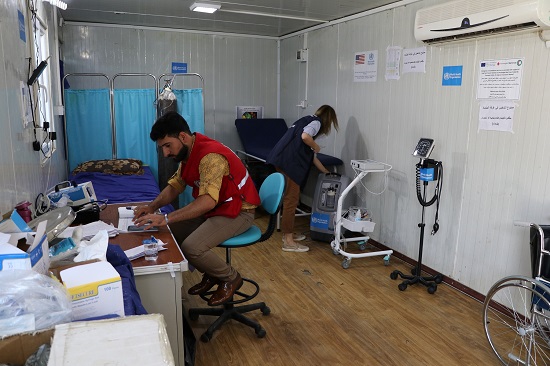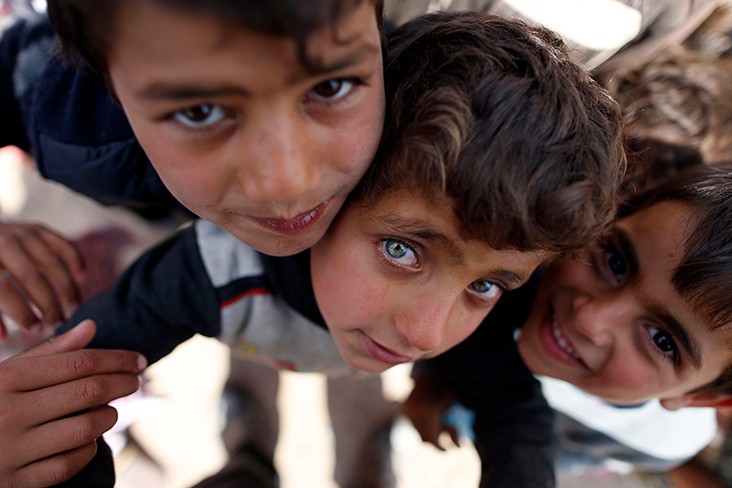WHO marks five years of strategic partnership with USAID in Iraq
The World Health Organization (WHO) marks the five-year milestone of its strategic partnership with the United States Agency for International Development (USAID) to support the provision of life-saving and essential healthcare services to vulnerable populations in Iraq.
Over the past five years, USAID has provided WHO Iraq with support totalling US$122 million.
Dr Ahmed Zouiten, WHO Representative in Iraq, said@
“USAID has been the biggest funding partner of WHO in Iraq over the past five years. We’re proud of this genuine and growing partnership, which helped us expand access to much-needed healthcare services for millions of people in different governorates.
“We greatly value and appreciate this impactful partnership, and we’re exploring new opportunities to deepen this collaborative partnership further.”
Impact of USAID’s contribution
Thanks to the generous contribution from USAID, over 6 million primary health care consultations, including mental and physical rehabilitation services, were provided to Iraqi citizens, while over 1,500 individuals benefited from various capacity building training.
USAID support also provided 56 new ambulances to the Iraqi health system, helping to ensure uninterrupted access to referral services. Funds also went to delivering essential medicines, medical supplies and diagnostic equipment to various conflict-affected governorates to provide comprehensive primary health care services to millions of people, including around 300,000 Syrian refugees and host communities in Erbil, Dahuk and Sulaymaniyah governorates.
In addition, USAID has contributed to WHO-Iraq’s preparedness and response to COVID-19 by adding up to 800 new COVID-19 vaccination locations, including in challenging humanitarian areas, such as in camps housing refugees and internally displaced persons.
It is also providing equipment and supplies, as well as technical assistance to Iraqi laboratories, clinics, and hospitals for testing, diagnosing, and treating COVID-19. USAID funding is also helping train frontline workers on caring for COVID-19 patients and organizing awareness-raising campaigns.
Heather Schildge, Acting USAID Mission Director to Iraq, said:
“The United States is the leading humanitarian assistance provider in Iraq. We are pleased to celebrate five years of fruitful partnership with the WHO and stand committed to working with the Government of Iraq and other partners to provide critical services to Iraq’s most vulnerable populations.”
(Source: UN)
The post WHO marks 5 Yrs of Strategic Partnership with USAID in Iraq first appeared on Iraq Business News.




